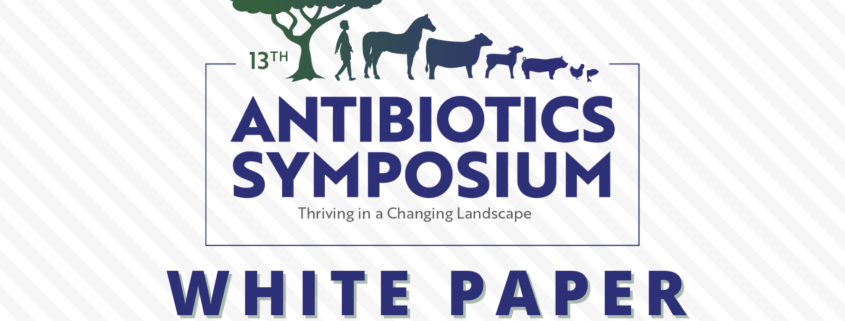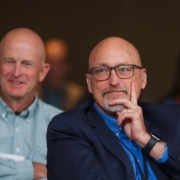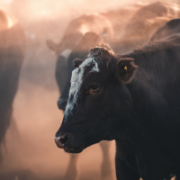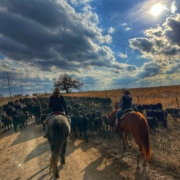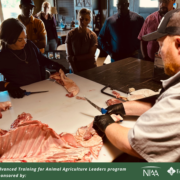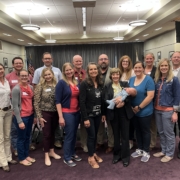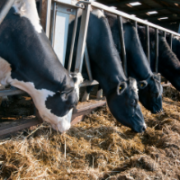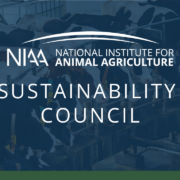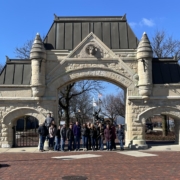Animal Agriculture Leaders Empower One Health Discussions Ahead of UN General Assembly
White papers, farm tours, and One Health leader collaborations to inform U.S. leaders for UN General Assembly meetings on AMR and stewardship in animal agriculture
Kansas City, Mo. (June 12, 2024) — The National Institute for Animal Agriculture (NIAA) has released the white paper from the 13th Annual Antibiotics Symposium – Thriving in a Changing Landscape. The White Paper provides a summary of the science-based information presented regarding the use of antibiotics in food-animals, public and environmental health implications, and the next steps of stewardship. Though antibiotic stewardship in human and livestock medicine will continue to play an important role, other focus areas emerged throughout the symposium. The intimate relationship between people and their pets presents an ideal opportunity to transfer antimicrobial resistance between animals and humans. These intimate relationships also build strong bonds, often resulting in the pursuit of medical interventions that mirror human medicine, including the use of high-powered antibiotics.
Symposium topics included an industry report on the current state of antibiotic stewardship from producer to processor to grocer, information on the latest antimicrobial stewardship and resistance research, the multi-dimensional aspects of antibiotic stewardship and AMR, regulatory updates, and One Health collaborations. True to the NIAA mission, the Symposium convened animal agriculture experts and allies in a collaborative setting to explore, discuss, learn, and develop knowledge that fosters interdisciplinary cooperation for the improvement and continuous progress of animal agriculture. The closing keynote, Dr. Karen Smith, speaker and independent consultant with decades of public health experience, left the attendees with this point to ponder, “The best and most effective policies are built through collaboration with those who will be most affected by the policy.”
NIAA serves as a contractor to the Cattlemen’s Beef Board and the Antibiotics Symposium is made possible in part by the Beef Checkoff. The 2023 Symposium program set the stage for two other collaborative efforts from NIAA happening in 2024. The Pork Checkoff is supporting a One Health pork tour in Minnesota that will convene veterinary, public health, and Centers for Disease Control and Prevention (CDC) leaders on a tour to multiple swine facilities to learn about biosecurity, stewardship practices, and more. The second convening will connect farmers and ranchers with CDC officials in Atlanta, GA prior to the UN General Assembly meeting on antimicrobial resistance (AMR). This meeting will support CDC delegates as they provide informed One Health information that includes perspectives and practical applications from experts and professionals in the animal agriculture sector.
To learn more about the upcoming 14th Annual Antibiotics Symposium to be held in Denver, CO at the Colorado State University SPUR Campus, November 19-21, 2024 or any of the One Health convenings, please contact Morgan Young, Director of Communications and Outreach for the National Institute for Animal Agriculture at morgan.young@animalagriculture.org.
###
About NIAA
NIAA is the leading resource for the animal agriculture industry and provides value to all stakeholders involved in providing safe and healthy food for the world. NIAA is a non-profit organization that is dedicated to providing programs to work towards providing solutions for disease, while promoting a safe and wholesome food supply and the best practices of environmental stewardship, animal health and well-being.
About the Beef Checkoff
The Beef Checkoff was established as part of the 1985 Farm Bill. The Checkoff assesses $1 per head on the sale of live domestic and imported cattle, in addition to a comparable assessment on imported beef and beef products. States may retain up to 50 cents on the dollar and forward the other 50 cents per head to the Cattlemen’s Beef Promotion and Research Board, which administers the national Checkoff program, subject to USDA approval.

